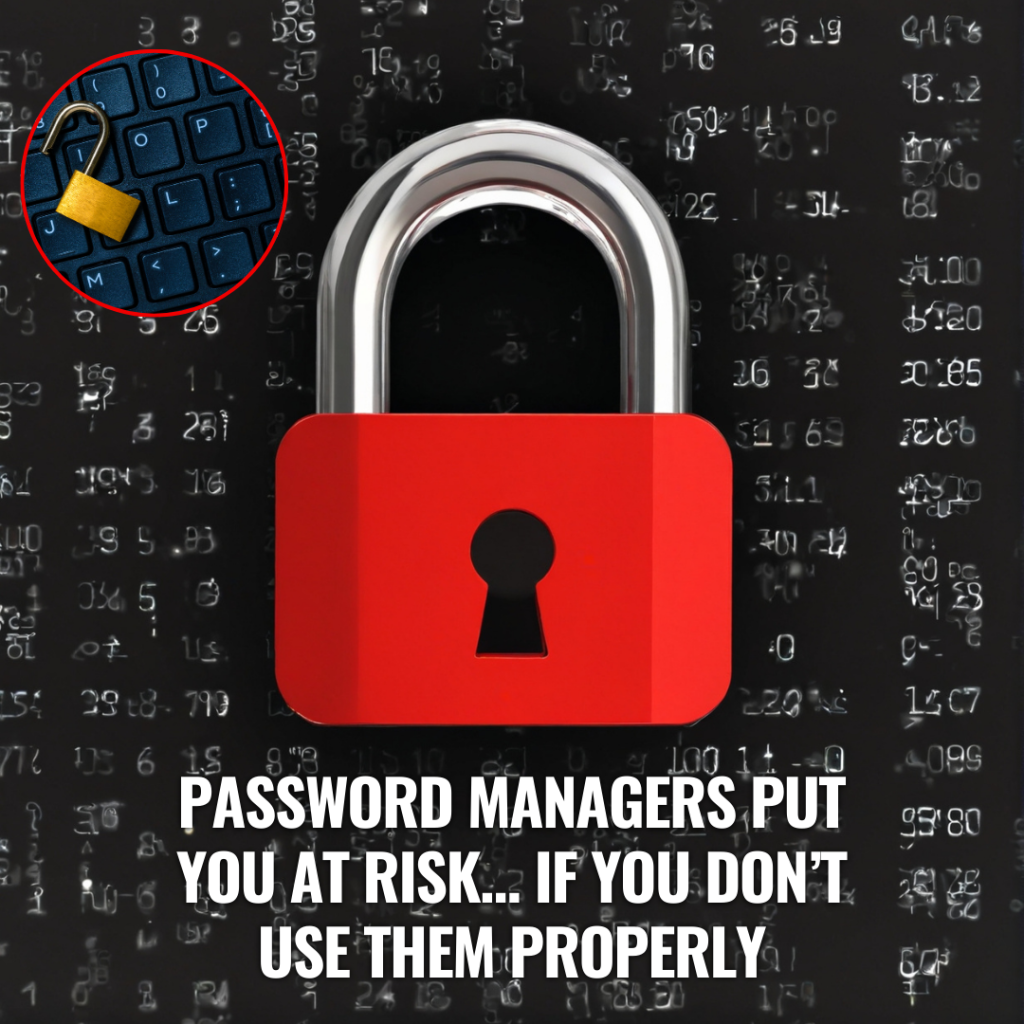
The Truth About Password Managers: Are They Really Safe?
In a world where digital security threats are constant, password managers have become a go-to solution for many individuals and businesses. They promise to store complex, unique passwords for every online account, making it easier to navigate the digital landscape without resorting to weak or reused passwords. But as with any technology, there are risks associated with using password managers. Let’s explore the truth behind these tools and whether they truly offer the level of protection they claim.
The Benefits of Using Password Managers
- Enhanced Password Security: One of the main advantages of password managers is their ability to generate and store strong, unique passwords for each of your accounts. According to Norton, password reuse and weak passwords remain a leading cause of security breaches. Password managers resolve these issues by automatically creating long, complex passwords that are difficult to crack.
- Ease of Use: Password managers eliminate the need for users to remember dozens of passwords. Instead, you only need to remember a single master password, which unlocks access to all of your stored login information. This significantly reduces the likelihood of password fatigue, which can lead to security lapses such as using easy-to-guess passwords.
- End-to-End Encryption: Reputable password managers, including LastPass, 1Password, and Bitwarden, use end-to-end encryption to protect your stored data. This means that your passwords are encrypted before they leave your device, ensuring that only you can access them, even if the password manager’s server is compromised. CNET points out that this encryption acts as a strong safeguard, making it nearly impossible for hackers to view your passwords without your master password.
The Risks of Password Managers
While password managers can significantly improve your digital security, they are not without their risks. Here are some potential vulnerabilities to consider:
- Phishing Attacks: One of the biggest threats to password managers is phishing. Hackers can attempt to deceive you into giving up your master password through fake login pages or malicious links. If an attacker gains access to your master password, they effectively gain control over all of your stored credentials. As noted by TechRadar, phishing remains one of the leading ways cybercriminals target users of password managers.
- Data Breaches: Password managers are often targeted by cybercriminals seeking to exploit vulnerabilities. While strong encryption methods protect your stored passwords, some password managers have been victims of data breaches. For example, LastPass experienced a high-profile breach in 2022, which exposed users’ encrypted password vaults, but the encrypted data itself remained secure. However, as The Verge explains, such incidents can still lead to the exposure of sensitive information like email addresses or metadata.
- Master Password Risks: The master password is the key to all of your stored passwords. If it’s weak or reused, it becomes an easy target for hackers. Even though password managers encrypt your vault, a strong master password is still essential. Security.org emphasizes that users must create a complex, unique master password and avoid using easily guessable information (like pet names or birthdays).
- Dependency on a Single Point of Failure: Because a password manager centralizes the storage of your passwords, it can become a single point of failure. If a hacker manages to compromise your master password or exploit a vulnerability in the password manager’s software, they can gain access to all your online accounts in one fell swoop. Wired highlights that while this is a concern, using multi-factor authentication (MFA) can mitigate some of the risks by adding an extra layer of protection.
Best Practices for Maximizing Security
Despite the risks, password managers remain one of the safest ways to store and manage your passwords, provided that you follow best practices:
- Use a Strong Master Password: Choose a master password that is both long and complex. A password manager is only as secure as the master password protecting it.
- Enable Multi-Factor Authentication (MFA): Always enable 2FA (two-factor authentication) on your password manager and any accounts that support it. This adds a second layer of protection even if your master password is compromised.
- Stay Updated: Regularly update your password manager to ensure you’re protected against the latest vulnerabilities and threats.
- Be Cautious of Phishing Attempts: Always double-check the URL and ensure that the website you’re logging into is legitimate. Never give out your master password or 2FA codes to anyone.
Conclusion: Are Password Managers Safe?
While password managers are not without their risks, they remain one of the most secure and convenient ways to manage your passwords. By using strong master passwords, enabling multi-factor authentication, and remaining vigilant against phishing attacks, you can significantly reduce the risks associated with these tools.
Password managers continue to evolve, with companies working hard to address vulnerabilities and provide enhanced protection. As Norton and CNET emphasize, when used correctly, password managers offer far better security than relying on memory or writing passwords down. Ultimately, the truth is that password managers are safe, but they require users to follow best practices to ensure they offer maximum protection.
References:
- Norton on password manager benefits: Norton
- CNET on password manager encryption: CNET
- TechRadar on phishing threats: TechRadar
- The Verge on LastPass breach: The Verge
- Security.org on best password practices: Security.org




